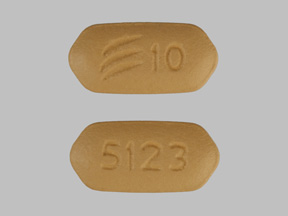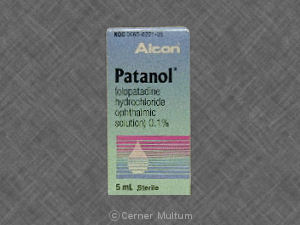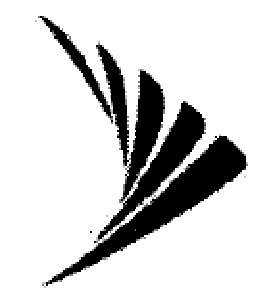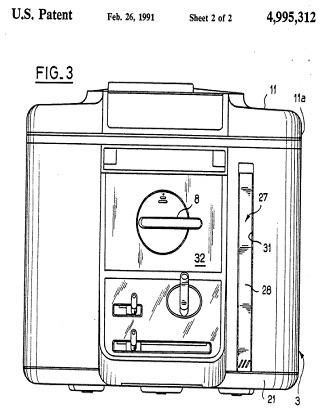Indianapolis, Indiana – An Indiana patent attorney for Eli Lilly and Company of Indianapolis, Indiana (“Lilly”) filed a lawsuit in the Southern District of Indiana against multiple defendants asserting infringement of Patent Nos. 5,288,726, “Tetrahydrothienopyridine Derivatives, Furo and Pyrrolo Analogs Thereof and Their Preparation and Uses for Inhibiting Blood Platelet  Aggregation,” 8,569,325, “Method of Treatment with Coadministration of Aspirin and Prasugrel” and 8,404,703, “Medicinal Compositions Containing Aspirin,” which have been issued by the U.S. Patent Office.
Aggregation,” 8,569,325, “Method of Treatment with Coadministration of Aspirin and Prasugrel” and 8,404,703, “Medicinal Compositions Containing Aspirin,” which have been issued by the U.S. Patent Office.
In a 101-page complaint, Indiana patent counsel for Plaintiffs Lilly; Daiichi Sankyo Co., Ltd.; Daiichi Sankyo, Inc.; and Ube Industries, Ltd. sued alleging patent infringement by more than thirty Defendants. The Defendants are: Accord Healthcare, Inc. USA; Accord Healthcare, Inc.; Intas Pharmaceuticals Ltd.; Amneal Pharmaceuticals LLC; Amneal Pharmaceuticals of New York, LLC; Amneal Pharmaceuticals Co. India Pvt. Ltd.; Aurobindo Pharma Limited; Aurobindo Pharma USA Inc.; Dr. Reddy’s Laboratories, Ltd; Dr. Reddy’s Laboratories, Inc.; Glenmark Generics Inc., USA; Glenmark Generics Ltd.; Glenmark Pharmaceuticals Ltd.; Hetero USA Inc.; Hetero Labs Limited; Hetero Labs Limited Unit V; Hetero Drugs Ltd.; Mylan Pharmaceuticals Inc.; Mylan Inc.; Mylan Laboratories Limited (these three companies are, collectively, “Mylan”); Par Pharmaceutical Companies, Inc.; Par Pharmaceutical, Inc.; Sun Pharma Global FZE; Caraco Pharmaceutical Laboratories, Ltd.; Sun Pharma Global Inc.; Sun Pharmaceutical Industries, Ltd.; Teva Pharmaceuticals USA, Inc.; Teva Pharmaceutical Industries, Ltd.; Watson Laboratories, Inc.; Actavis plc; Actavis, Inc.; Actavis Pharma, Inc.; Zydus Pharmaceuticals USA, Inc.; and Cadila Healthcare Ltd. (d/b/a Zydus Cadila). Defendants hail from various areas of the world, including India, the United Arab Emirates, the British Virgin Islands, Israel, Ireland and the United States.
This complaint asserts patent infringement arising out of the filing by Defendants of Abbreviated New Drug Applications (“ANDA”s) with the United States Food and Drug Administration (“FDA”) seeking approval to manufacture and sell generic versions of two pharmaceutical products – Effient® 5mg and Effient® 10mg tablets (pictured above) – prior to the expiration of United States Patent Nos. 5,288,726 (the “‘726 patent”), 8,404,703 (the “‘703 patent”) and 8,569,325 (the “‘325 patent”), which cover the two Effient® products and/or methods of using Effient® products and for which Lilly claims an exclusively license.
Effient® products were approved by the FDA for the reduction of thrombotic cardiovascular events in certain patients with acute coronary syndrome (ACS) who are to be managed with percutaneous coronary intervention (PCI, or angioplasty). Effient® products contain prasugrel hydrochloride, which is also known as 5-[(1RS)-2-cyclopropyl-1-(2-fluorophenyl)-2-oxoethyl]-4,5,6,7-tetrahydrothieno[3,2-c]pyridin-2-yl acetate hydrochloride or 2-acetoxy-5-(alpha-cyclopropylcarbonyl-2-fluorobenzy1)-4,5,6,7-tetrahydrothieno[3,2-c]pyridine hydrochloride, and is covered by the ‘726 patent.
The instructions accompanying Effient® products state that patients taking Effient® products should also take aspirin. The use of Effient® products in combination with aspirin for the reduction of thrombotic cardiovascular events in patients with ACS who are to be managed with PCI is allegedly covered by the claims of the ‘703 and ‘325 patents.
Defendants are, in general, accused of infringing the patents-in-suit by including with their products instructions for use that substantially copy the instructions for Effient® products, including instructions for administering the Defendants’ products with aspirin as claimed in the ‘703 and ‘325 patents. Moreover, Plaintiffs contend that Defendants know that the instructions that will accompany the Defendants’ Products will induce and/or contribute to others using the Defendants’ Products in the manner set forth in the instructions.
Plaintiffs also contend that Defendants specifically intend that health care providers, and/or patients will use the Defendants’ Products in accordance with the instructions provided by Defendants to directly infringe one or more claims of the ‘703 and ‘325 patents. In doing so, state Plaintiffs, Defendants will actively induce and/or contribute to infringement of the ‘703 and ‘325 patents.
The complaint, filed by an Indiana patent attorney, lists a total of fifty counts. All Defendants are accused of infringement of the ‘703 and ‘325 patents. Declaratory judgment of infringement of these patents is sought against all Defendants. Additionally, claims of infringement of, and a request for declaratory judgment regarding, the ‘726 patent are made against Mylan.
Plaintiffs ask the court for judgment:
• That all Defendants, either individually or collectively, have infringed or will infringe one or more claims of the ‘703 patent;
• That all Defendants, either individually or collectively, have infringed or will infringe one or more claims of the ‘325 patent;
• That Mylan, either individually or collectively, has infringed or will infringe one or more claims of the ‘726 patent;
• That, pursuant to 35 U.S.C. § 271(e)(4)(B), Defendants be permanently enjoined from making, using, selling or offering to sell any of the Defendants’ accused products within the United States, or, where applicable, importing accused products into the United States prior to the expiration of the ‘703 and ‘325 patents;
• That, pursuant to 35 U.S.C. § 271(e)(4)(A), the effective date of any approval of any ANDAs under § 505(j) of the Federal Food, Drug and Cosmetic Act (21 U.S.C. § 355(j)) shall not be earlier than the later of the expiration dates of the ‘703 and ‘325 patents, including any extensions;
• That the ‘703 patent remains valid and enforceable;
• That the ‘325 patent remains valid and enforceable;
• That the ‘726 patent remains valid and enforceable;
• If any Defendant commercially makes, uses, sells or offers to sell any accused product within the United States, or, where applicable, imports any accused product into the United States, prior to the expiration of either of the ‘703 and ‘325 patents, including any extensions, that Plaintiffs be awarded monetary damages for those infringing acts to the fullest extent allowed by law and be awarded prejudgment interest based on those monetary damages;
• If Mylan commercially makes, uses, sells or offers to sell any accused product within the United States, or, where applicable, imports any accused product into the United States, prior to the expiration of the ‘726 patent, including any extensions, that Plaintiffs be awarded monetary damages for those infringing acts to the fullest extent allowed by law and be awarded prejudgment interest based on those monetary damages;
• That the case be deemed exceptional under 35 U.S.C. § 285; and
• That Plaintiffs be awarded reasonable attorney’s fees, costs and expenses.
Practice Tip: Lilly is not an infrequent litigant. This may be in part due to the fact that the company is facing a significant patent cliff. Its patent for a former top product, the antipsychotic Zyprexa – which once generated $5 billion in annual revenues – expired in 2011. Its top-selling drug of 2013, the antidepressant Cymbalta, lost patent protection last year. The patent on blockbuster Evista, a drug for breast cancer and osteoporosis, expires this month.
 Indiana Intellectual Property Law News
Indiana Intellectual Property Law News


 Texas and
Texas and  attorneys for
attorneys for 
